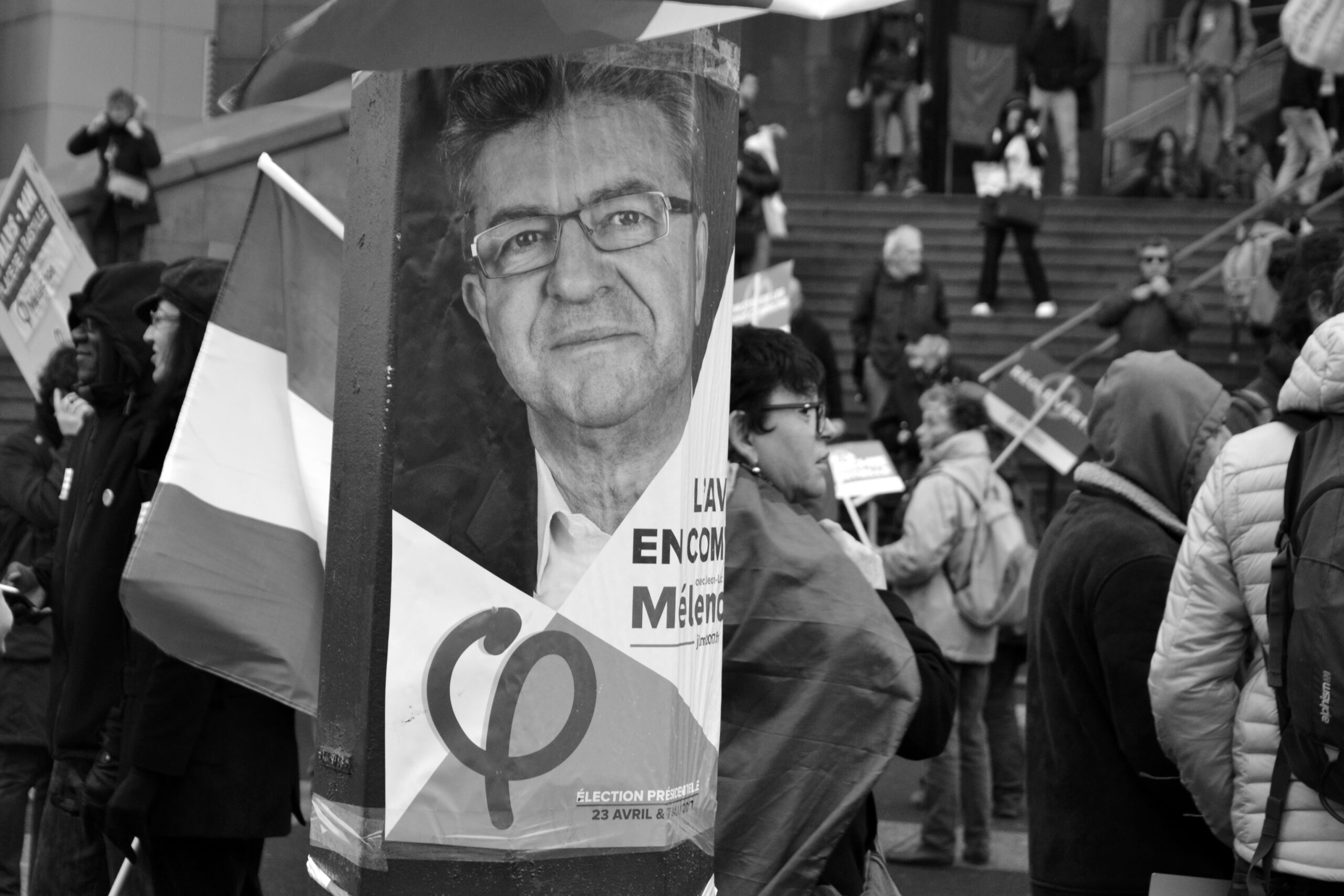Mélenchon and China

The opening ceremony of the Beijing Olympic Games will be held on February 4. On January 20, 2022, the French National Assembly passed, almost unanimously, a resolution brought by the Socialist Party that denounced the genocide of the Uighurs (Ouïghours) by the Chinese government. Four abstentions against the vote came from Jean-Luc Mélenchon’s party, La France Insoumise: Clémentine Autain, Mathilde Panot, Danièle Obono, and Ugo Bernalicis. The Communist Jean-Paul Lecoq also abstained. Buon Tan, of Emmanuel Macron’s party La République en Marche (LREM), is the president of a France-China friendship group, and voted no.
Anne Hidalgo, the Socialist Party candidate, immediately condemned the LFI (and her rival for the presidency, Mélenchon himself) for their votes, noting that “the Insoumis give us many lessons on human rights, on democracy,” but had nevertheless refused to support the non-binding symbolic condemnation.
Autain, a journalist and activist with a doctorate in History, took the lead in explaining their vote, basing their argument on the lack of clear definition of the term “genocide,” and its usage in this case. “My speech,” she said later, “very clearly challenges the Chinese regime and underlines my solidarity with the Uighur people, who are suffering horrific atrocities. What we pointed out, is the use of the term genocide, which is not the term used by the majority of international organizations, nor by the declaration of the 43 nations at the UN last October, and which [is a term] that has absolutely no consensus in the scientific community of historians and jurists,” noting that genocide “is not a synonym of crimes against humanity.”
Autain has spoken out before against the treatment of the Uighurs; but in the selection of her speech that she posted on twitter, she added several other considerations: “If there is truly a genocide, how can we send a team to the Olympics, make commercial deals with China, and have diplomatic relations with China?” Her conclusion was that such “word inflation” did nothing to help the Uighur people.
Le Point also noted, in fairness, that Human Rights Watch and Amnesty International had condemned the actions of the Chinese against the Uighurs as “crimes against humanity,” but not as genocide, on the basis–according to Alkan Akad, a researcher at Amnesty International–that there had been no large-scale murders; and cultural genocide was not a legal term; and despite “imprisonment, torture, and persecutions,” there was, as yet, no proof of the intent to destroy the Uighurs as a people.
Mélenchon was out defending himself shortly after the vote, noting that the resolution would “legitimate the American will ‘to strangle the Chinese.’” He recommended “dialogue” with the Chinese, to let them know that what they are doing is unacceptable. And he raised the issue of hypocrisy, as in the excerpt from an interview on January 21: “China recognizes that it is putting Uighurs in labor camps. We can disagree with that, I condemn it. But no hypocrisy: if one speaks of ‘génocide,’ we must intervene to stop it. But those who voted for that [resolution] do nothing.”
Even on the restricted ground of terminology, not everyone agreed with Mélenchon and Autain. Marc Julienne, a China specialist at the Institut français des relations internationales, a think tank, pointed out that genocide had been defined in 1948 by the United Nations, and that the term was applicable.
And yes, the Chinese were angry, denouncing the resolution as a “gross interference in internal Chinese affairs.”
=====================================================================
Header photo from Shutterstock.com
Ronan Tésorière, “Résolution sur le génocide des Ouïghoura pourquoi des députés LFI se sont-ils abstenus?” Le Parisien, January 21, 2022. https://www.leparisien.fr/politique/resolution-sur-le-genocide-des-ouighours-pourquoi-des-deputes-lfi-se-sont-ils-abstenus-21-01-2022-G4SHDLFUSZE3BMJ3DA4QEIBJYE.php?ts=1643149394472
Mathilde Cousin, “Chine: Peut-on ecarter le terme de ‘génocide’ des Ouïghours, comme le fait Jean-Luc Mélenchon?” 20minutes, January 20, 2022. https://www.20minutes.fr/monde/3219011-20220120-chine-peut-ecarter-terme-genocide-ouighours-comme-fait-jean-luc-melenchon; see also See also Charlotte Murat, “Présidentielle 2022: Ce qu’il faut retenir du ‘Live Présidentiel’ TF1-20 Minutes avec Jean-Luc Mélencho,” 20 Minutes, January 13, 2022. https://www.20minutes.fr/politique/3216287-20220113-presidentielle-2022-fait-retenir-live-presidentiel-tf1-20-minutes-jean-luc-melenchon
Jérémy André, “Ouïgours: les contorsions de Jean-Luc Mélenchon,” Le Point, January 25, 2022. https://www.lepoint.fr/monde/ouigours-les-contorsions-de-jean-luc-melenchon-25-01-2022-2461981_24.php?M_BT=3554320551968#xtor=EPR-6-%5BNewsletter-du-soir%5D-20220125-%5BArticle_1%5D
LePoint with AFP, “Génocide des Ouïgours: LFI s’abstient, Mélenchon fustige l’’hypocrisie’ des députés,” Le Point, January 22, 2022. https://www.lepoint.fr/politique/genocide-des-ouigours-melenchon-s-abstient-et-fustige-l-hypocrisie-des-deputes-22-01-2022-2461578_20.php
United Nations, Office on Genocide Prevention and the Responsibility to Protecthttps://www.un.org/en/genocideprevention/genocide.shtml
Edith M. Lederer, “43 Countries criticize China at UN for repression of Uyghburs,” AP News, October 21, 2021. https://apnews.com/article/religion-china-race-and-ethnicity-united-nations-c5dfb489b566260f8c50ff6124d0e175